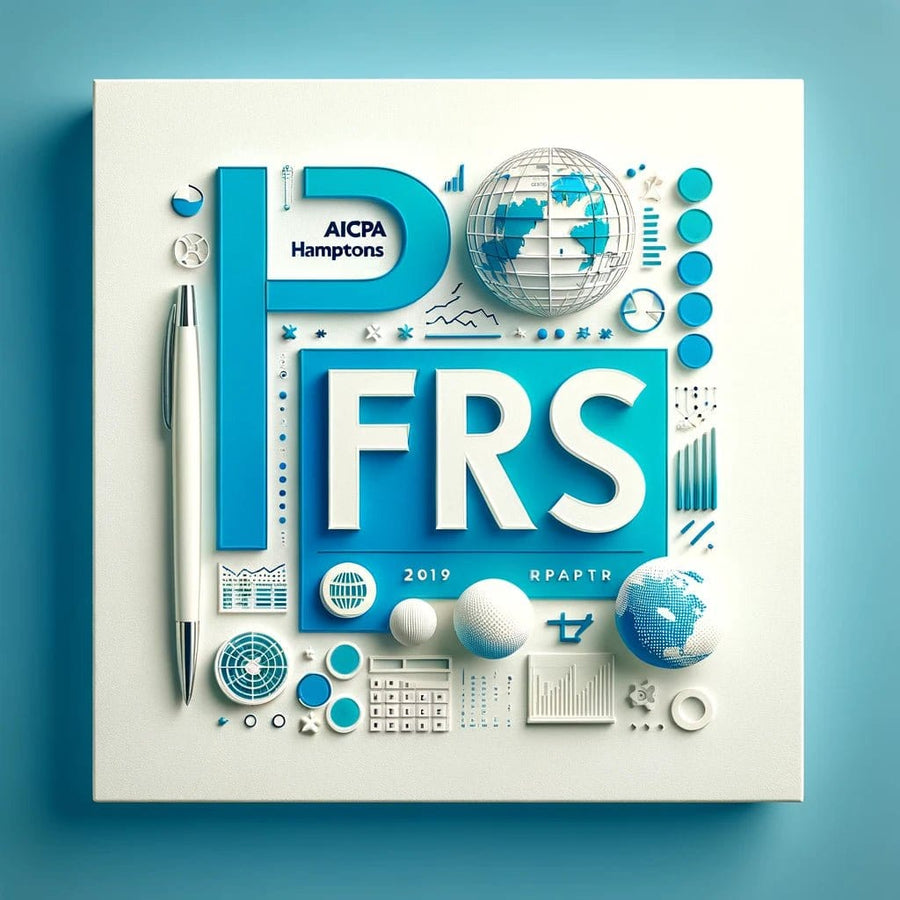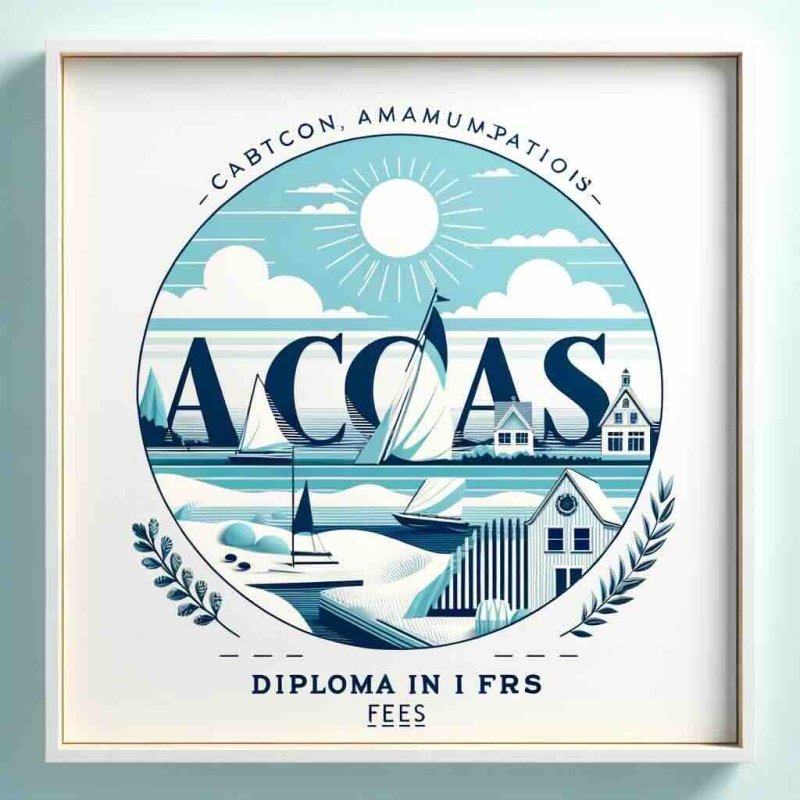ACCA After CA. Is it good to do ACCA after my CA?
ACCA After CA
Are you a CA (Chartered Accountant) and thinking about doing your Acca (Association of Chartered Certified Accountants)? You are not alone.
Many professionals, who have passed their CA exams, are making the decision to do their Acca. But is it worth it? In this blog post, we will explore the benefits of doing your Acca after your CA and any other alternatives.
We get many Indian Chartered Accountants enquiring that they wish to take an ACCA after CA. The stimuli to take up ACCA primarily come from:
- Standing Out in the Crowd: Seeking unique credentials to set your resume apart from the sea of fellow Chartered Accountants.
- Global Career Ambitions: Aiming to catch the eye of international recruiters with a skill set that transcends borders.
- Keeping Pace with Peers: Motivated by the journey of friends pursuing ACCA and the encouragement from mentors who see the value in adding this qualification.
ACCA after CA. Is it worth it
The decision to pursue ACCA after completing CA is multifaceted. Let's explore the pros and cons before we paint a detailed portrait to help you weigh your decision with depth and nuance.
Pros of Pursuing ACCA After CA
-
The Globe-Trotter’s Delight: If you're envisioning your career path leading you across continents, ACCA is your golden ticket. Especially favored in Europe and the Middle East, this qualification opens international doors that CA alone may not.
-
The Connoisseur of Opportunity: ACCA broadens your horizon. Whether it’s about diving into global financial standards or embracing roles that demand a nuanced understanding of accounting beyond borders, you’re gearing up to be a connoisseur in a niche market.
-
The Social Butterfly’s Advantage: Influenced by peers and tutors? This path not only broadens your professional network but aligns you with a global community of finance professionals.
Cons of Pursuing ACCA After CA
-
The Homebody’s Predicament: For those whose career compass points strictly within India, ACCA might not be the most cost-effective addition to your arsenal. The local job market tends to prize experience and specific skills over an additional qualification.
-
The Timekeeper’s Dilemma: ACCA is no stroll in the park. It demands a significant investment of your time—think long hours of study on top of your job. It's a marathon of dedication.
-
The Financial Calculator’s Warning: Pursuing ACCA is not just a commitment of time and effort but also finances. Before diving in, consider the return on investment, especially if your career track is firmly rooted in India.
-
The Explorer’s Quandary: Before committing to ACCA, explore all paths. There might be alternative qualifications or skills (like IFRS/USGAAP, data analytics, sustainability reporting) that align more closely with your career aspirations and offer a better return on investment.
Is an ACCA qualification and a CA a good combination?
It depends on the following three factors
- Local Champion or Global Explorer? Where do you see your career thriving: within India's dynamic markets or on a global stage?
- Commitment Check: Are you ready to dive deep into new studies with your time and energy?
- Skill Expansion: What other skills or courses could catapult your career to new heights?
ACCA After CA. Detailed overview.
1) Are you going to work in India?
Enhancing Your CV Beyond Initial Qualifications: If your career is set to unfold within India, adding another CA qualification might not significantly elevate your resume. It's akin to a doctor who has already earned their MBBS in India; obtaining the same degree from the UK wouldn't markedly impact their career trajectory within the Indian healthcare system. After securing your initial qualification and landing your first job, the focus shifts towards acquiring and refining skills that are directly applicable and valuable to your industry.
We spoke to many CFOs and recruiting firms, and the summary of what they said is as under:
- Navigating India's Finance Hiring Landscape: In India, the key figures in finance hiring, like Finance Controllers and CFOs, often hold CA credentials. They are more attuned to the nuances of Indian CA training over ACCA, favouring familiarity over foreign qualifications. After your initial job, the spotlight shifts from your CA status to the practical skills and value you bring. To climb the finance career ladder, focus on three main skill sets:
-
- Technical skills like IFRS, USGAAP, Taxation, Valuation, and ESG - Early investment in these areas, ideally in the first 8 years of your career, can fast-track your journey to a CFO role.
- Leadership Qualities: From around five years into your career, especially in managerial roles, enhancing your soft skills—like leadership, decision-making, and analytics—is crucial.
- Digital Fluency: The finance sector's digital transformation demands proficiency in modern technologies such as blockchain, data analytics, and robotic process automation (RPA). Gone are the days when Excel or SAP knowledge sufficed; today, fintech expertise is indispensable.
- Salary Insights and Skill Emphasis: Our investigation into salary data from job portals and conversations with recruiters highlights a critical insight: adding another qualification doesn't necessarily translate to a higher salary. The unique skills you bring to the table can significantly influence your earnings. Thus, enhancing your resume with specialized skills is a more effective strategy for standing out among CAs than accumulating additional qualifications.
- The Differentiation Dilemma: In India, now where ACCA can be done along with B.Com degrees, how do you position yourself to stand out among Bcom students with ACCA in the Indian market?
2) Are you going out of India?
If you are moving abroad either on a Permanent residency or your employer has asked you to move. We strongly recommend adding an ACCA qualification will enhance your job prospects.
You will be exempt from 9 out of the 13 papers, leaving you to pass the strategic professional level exams of ACCA. You will need to write only 4 out of the 13 exams and complete the ethics compliance training.
Europe and the Middle East: Amplifying Opportunities with ACCA
Elevate Your Career Prospects: For those eyeing a career in Europe or the Middle East, obtaining an ACCA qualification can significantly enhance your job opportunities. This credential could improve your chances for more qualitative roles and better salaries by three to fivefold. Recruiters in these regions highly regard ACCA due to its global recognition and the level of expertise it represents. Becoming an ACCA member showcases your commitment to the profession. It aligns you more closely with the expectations of international finance communities.
US, Canada, and Australia: The Strategic Path to CPA
Navigating Towards CPA: If your professional journey is steering towards the US, Canada, or Australia, pursuing the CPA designation specific to these countries offers a strategic advantage over ACCA. The ICAI has established MOUs with CPA Canada and CPA Australia. This arrangement allows Indian CAs to bypass the bulk of the CPA exam requirements, needing to pass only one or two exams to earn their CPA status. Opting for the CPA route in these countries simplifies the certification process. It enhances your employability and recognition in their respective job markets.
3) How committed are you for ACCA After CA?
The Alluring Path of ACCA: After surmounting the rigorous challenges of becoming a CA in India, tackling four more professional-level papers to earn the ACCA designation might seem enticing. However, this ambition requires a closer look at what the ACCA journey entails.
- Understanding the ACCA Rigor: ACCA examinations demand a profound comprehension of concepts, contrasting sharply with the CA’s right-or-wrong answer approach. The ACCA's evaluation criteria focus on the quality of reasoning, which means preparing for these exams is about mastering the depth of each topic.
- Preparation Timeframe and Commitment: Preparing for any ACCA paper is significant, demanding approximately 150 to 200 hours of study per subject. This level of commitment is substantial, especially when juxtaposed with the 90 days of dedicated study leave typically granted for CA exams. The crucial question for potential ACCA candidates is whether they can realistically allocate around 2 hours daily over two months for each subject and replicate this effort across all four papers.
- Balancing Act: The challenge extends beyond intellectual rigour to effectively manage time within a busy professional schedule. The transition from CA to ACCA is a continuation of academic endeavour and a new expedition requiring meticulous planning, dedication, and substantial time investment.
Before embarking on this journey, it’s essential to assess your willingness to engage with the ACCA's distinct academic demands and your capacity to integrate this intensive study regimen into your existing work-life balance.
4) Are there other courses that you can consider instead of doing the ACCA?

Many new-age skills are in demand with recruiters globally, and they attract huge salaries. You can factor these in and differentiate your CV from other CA's. These are also on the job market globally and will attract global recruiters if you take up an international certification.
- IFRS/USGAAP Certification: Essential for Aspiring CFOs: Securing an IFRS or USGAAP certification, costing about 30K to 40K INR, not only enhances your CV but also aligns with the rising demand for such expertise amid increasing global IPOs. This evergreen skill set promises to support your career growth up to the CFO level.
- The Rise of Sustainability Reporting: The movement towards integrating Environmental, Social, and Governance (ESG) considerations into the recruitment process underscores ESG's critical role in corporate strategy. Businesses now understand that their longevity and prosperity hinge on more than just financial outcomes; how they navigate environmental and social challenges, as well as governance issues, is equally pivotal. Consequently, there's a growing demand for professionals equipped with ESG expertise, capable of guiding companies towards achieving their sustainability objectives.
- Data Analytics: A Financial Game-Changer: In the finance industry, proficiency in data analytics has become a highly sought-after skill, marking a significant shift in what defines a top-tier professional. Chartered Accountants who complement their credentials with data analytics expertise not only widen their career opportunities but can also see a salary increase of 20% to 50%. Investing in a comprehensive data analytics course, with an approximate cost of 150K INR, represents a strategic move for those looking to elevate their standing and impact in the financial sector.
- CIMA UK: A Strategic Addition for CAs: For Chartered Accountants looking to broaden their qualifications, the CIMA Global UK qualification presents an excellent opportunity. By completing just one case study, CAs can earn this prestigious credential, enriching their skill set with management accounting and strategic thinking. This complements the technical and functional accounting knowledge from ICAI, offering a well-rounded professional profile.
Summary of ACCA after CA:
If you are seeking for advice or looking to do your ACCA or need any further certifications, do reach out to us at info@eduyush.com or WhatsApp us at +919643308079
acca after ca. Questions? Answers.
If you go through an ACCA partner, we estimate your costs to be around INR 150,00 which will cover the following
1)registration fees
2) Exemptions fees
3) exam fees for the four professional papers
4) ethics and professional skills module
5)annual subscription fees
6) BPP books with BPP online classes.
To know more do reach out to the Eduyush team.
To enrol, students will need to apply via Myacca for exemptions from 9 papers. If you are keen on enrolling, Eduyush team will help you out in this regard and also work on your scholarships on your exemptions.
For a CA, you need to write four professional-level papers and complete an ethics module.
We estimate approximately a year to eighteen months to complete. This is after factoring in your work schedule and trends of our past students.
If you are planning to take up ACCA, its always better to start it after your CA for the following reasons
1) You will be exempt from the Applied Knowledge and Applied Skill level exams. So that's nine out of thirteen papers
2) Scholarships are better for a CA than others
3) Focus on clearing your CA first, as doing together both will take away your focus from both.
Take the ACCA during your CA only if you are planning to give up taking the CA exams altogether.
The answer is Yes and No
Yes :
1) Your conceptual clarity needs to be higher
2) The ACCA strategic professional level exams are case study based. This will require skillsets in exam technique and communication
3) Rote learning will not help
4) Marks are awarded for good and bad answers rather than the solution.
No:
1) Unlike CA, you don't need to write in groups. so you can schedule one exam at a time and clear it. You need to score 50% to clear the subject individually
2) You can schedule your papers quarterly
3) Plenty of ACCA resources on-site that will guide you on how to plan your studies.
To become a member of ACCA and qualify as a professional accountant, your must complete the Practical expereince Requirements (PER).
There are three components to the PER:
1) completing 36 months' employment in an accounting or finance-related role or roles
2) achieving five Essentials and at least four Technical performance objectives to the satisfaction of your practical experience supervisorrecording and
3) reporting your PER progress through the onlineMy Experiencerecord.
Since you are already a CA, your articleship expereince should siffuce all points especially towards point 1 and 2. If you are missing out on any of objectives in point 2, you can still gain that though work expereince.
Yes you can become a member of the Chartered Accountants Australia and Newzealand once you fulfil the following criteria.
1) You are residing in Australia or Newzealand
2) Submit a Letter of Good Standing from ACCA. The letter must be dated within 3 months of the date of your application
3) Have at least 5 years of work experience in finance and accounting post admittance to ACCA. This must be backed by your employer's attestation.
4) Two CA references from CA ANZ Members
CPA Canada signed the Mutual Recognition Agreement (MRA) with ACCA (the Association of Chartered Certified Accountants) in 2011.
In 2020, CPA Canada activated the withdrawal from the existing MRA because it intended to agree to a fresh MRA with ACCA. The withdrawal of the MRA is applicable from April 30, 2021.
No new timelines have been given for when the new MRA will come in.
We would advise Indian CA's to apply using the MRA with CPA Canada directly rather than the ACCA route











Leave a comment